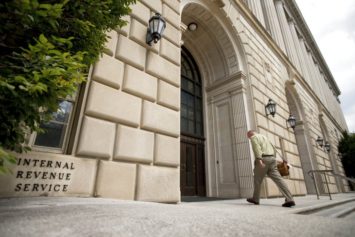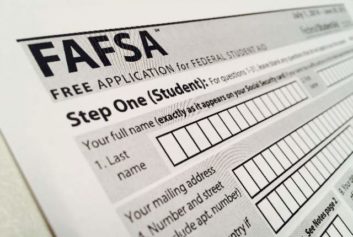Babysitting, lawn mowing and delivering newspapers have long been part of coming of age. It was a way of earning some spending cash and learning responsibility along the way.
Apparently, that responsibility includes paying taxes.
The IRS has a long list of rules about what constitutes taxable income for students.
According to the IRS, the following kinds of income often received by students are generally taxable.
- Pay for services performed
- Self-employment income
- Investment income
- Certain scholarships and fellowships
Say, for example, you get a fellowship or grant for $5,000 and use $4,500 for tuition, books and fees and $500 for personal stuff. The rules say that $500 in personal spending is income and you owe taxes on that.
There are a number of permutations on that and it’s hard to know what is taxable without a scorecard.
I knew that students had to file, but I assumed they would get their money back in a tax refund. At least it was that way at one time. Today’s tax rate may be lower for students than for their parents, but the payback my friends and I enjoyed once upon a time as students is history – and has been for a while. It just seems more onerous now.
A recent conversation over lunch with a close friend stirred the pot.
When we were in high school and college (late ‘60s, early ‘70s), she had worked summers and holidays at a federal agency. Back then, when students filed, they received refunds on the taxes taken out of their checks because they were full-time students.
Well, my friend, who went on to work for the federal government as a careerist, decided to see if she had enough years in service to start thinking about retirement. There was good news and bad news.
The good news was that those summers and holiday seasons spent working for the feds would count toward her total years of service, which would get her to 40 years of service much faster than she had anticipated.
The downside, however, was that when tax law changed to end the refunds for students, no one was grandfathered in and my friend now owed Uncle Sam tax on income earned during those years.
With interest and penalties, my friend now owed the government $1,800. If she waited until she retired, additional interest and fees would accrue and since she’s a few years away from retiring that could really add up.
“So I made an appointment and I’m going in and writing a check for $1,800,” she told me.
I began to wonder when the rule changed and how it now worked. As I began researching I saw how long the list of what is considered taxable income for a student had grown. It’s not just interest income if grandma and grandpa left something in the will or Sissy took on a waitressing job or spent the summer in the government.
It is also the little things, like babysitting, mowing lawns or shoveling snow that are subject to taxation.
And I can’t tell you why, but something just doesn’t seem right about that. If Junior earns a few hundred dollars washing cars or mowing lawns this summer, seems that he ought to be able to pocket it and, hopefully, with instruction from his parents or a reliable adult, figure out how to put some in savings, set up a budget and maybe even splurge a little. But it seems all of it ought to go into his pocket.
It also doesn’t seem right to owe taxes on money the government refunded nearly 40 years ago.
Jackie Jones, a veteran journalist and journalism educator, is director of Jones Coaching LLC, a career transformation firm.


